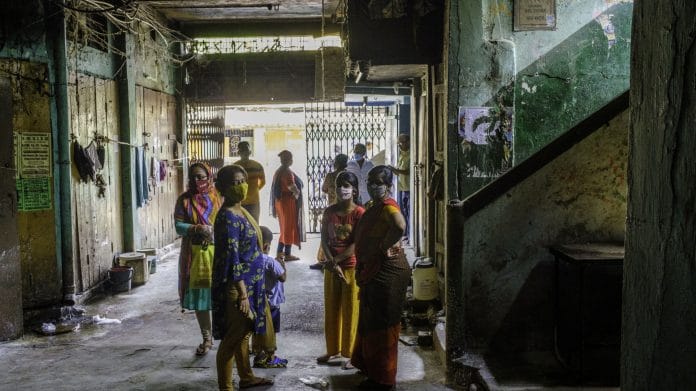New Delhi: Women in India suffered disproportionately because of the coronavirus outbreak last year and they are once again at the receiving end of the pandemic’s second wave, adding to the risks of economic recovery.
From lower wages to job losses and slower pace of vaccination to increased mortality, women have been hit more severely than men in India, a cross-section of data compiled by Bloomberg News show. They also fare poorly when compared with women around the world on parameters such as unpaid work at home and mental health.
The worsening gender gap is not only unraveling years of progress toward equity, it is also threatening to slow the recovery of Asia’s No. 3 economy from an unprecedented recession last year by eroding productivity.
Here are five charts that show how the pandemic is dealing a blow to women in India:
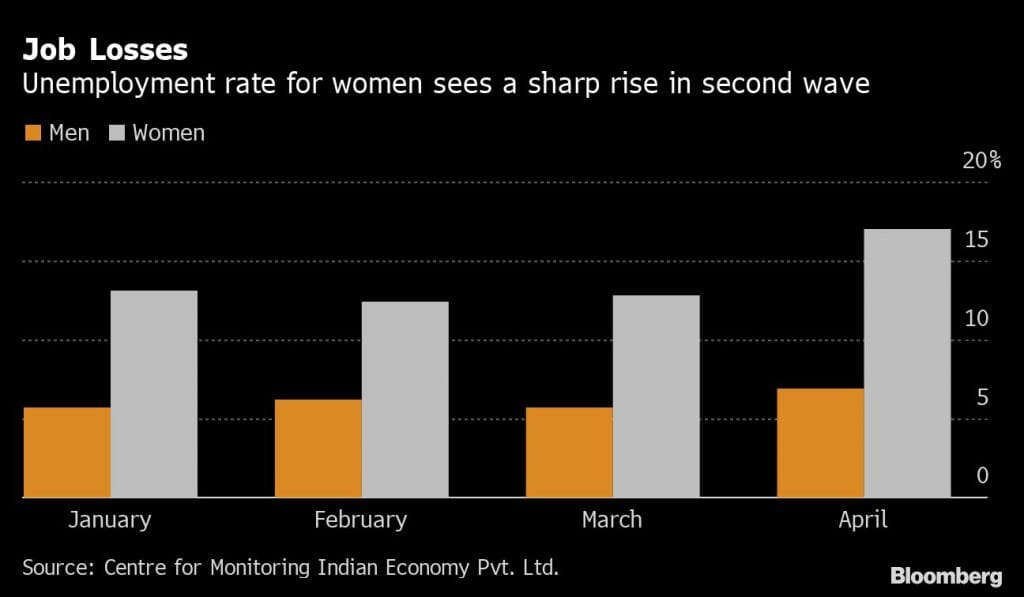
Provincial lockdowns by state governments to break the virus’s transmission cycle hurt economic activity, which in turn resulted in more than 17 million jobs being lost in the past two months. The impact was especially severe for women, with their unemployment rate shooting up to 17%, more than double the rate for men, data from private research firm Centre for Monitoring Indian Economy Pvt. showed.
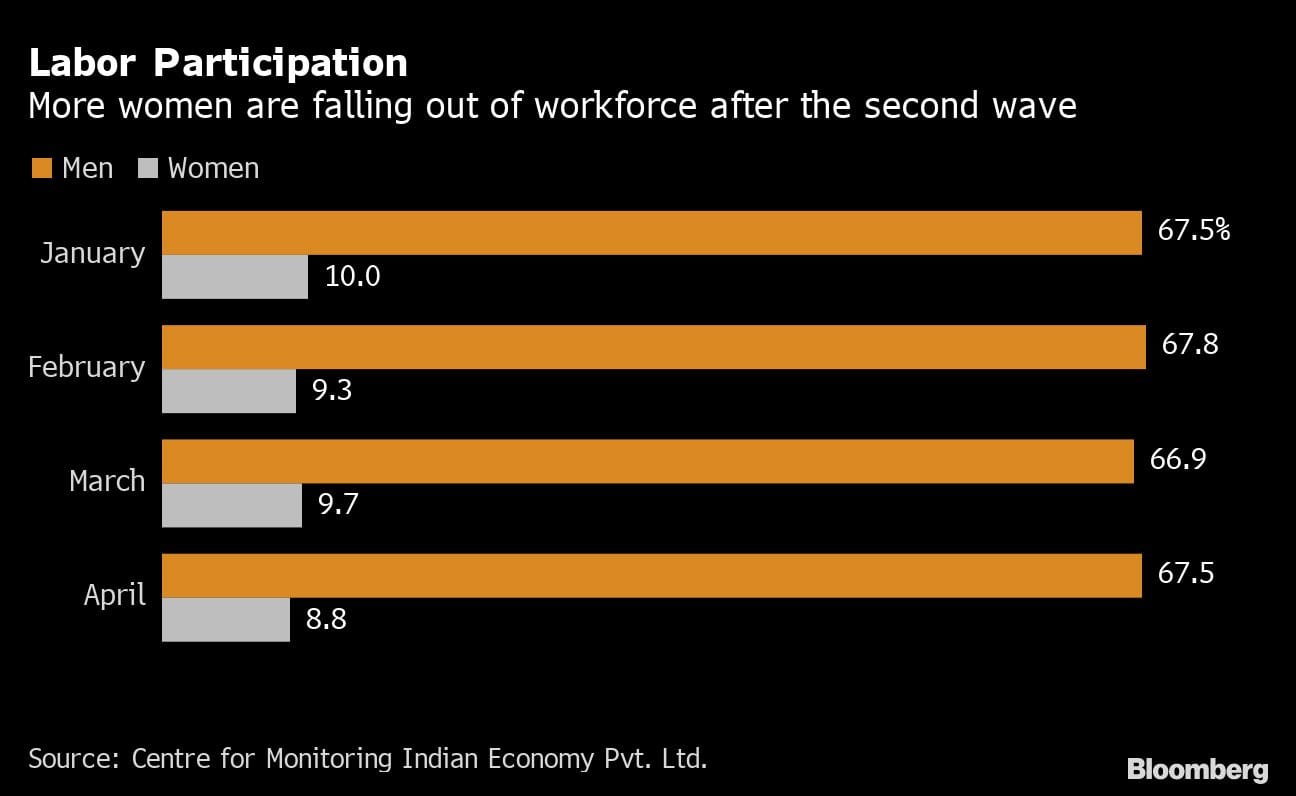
Several women who lost their jobs didn’t look for new ones, CMIE data shows. The young and the women are those who suffer the most in times of economic shock, said Mahesh Vyas, the research firm’s managing director. “They say it’s too tough to manage job in this kind of an environment,” he said. “You are required to travel a lot. Having infrastructure to enable women to go out safely and come back safely is the solution.”
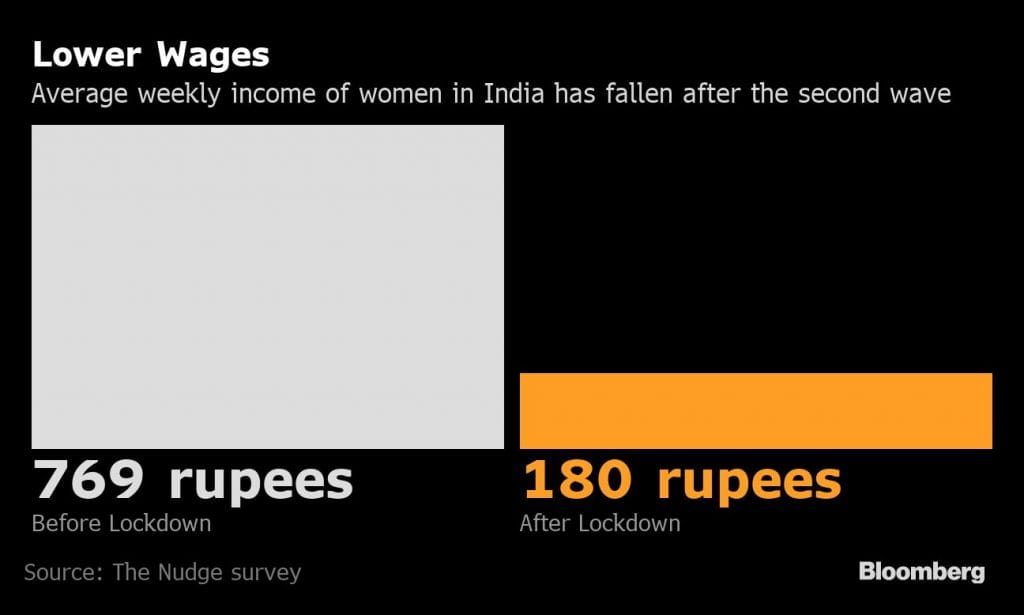
Many of those who managed to keep their jobs had to deal with a drop in wages. Income of women has seen a drastic fall and was inversely associated with a sharp spike in new virus cases in India. In a survey by The Nudge Foundation, women reported a more than 76% reduction in weekly income due to lockdowns to control the pandemic. They had to dip into their savings and faced issues related to food and health.
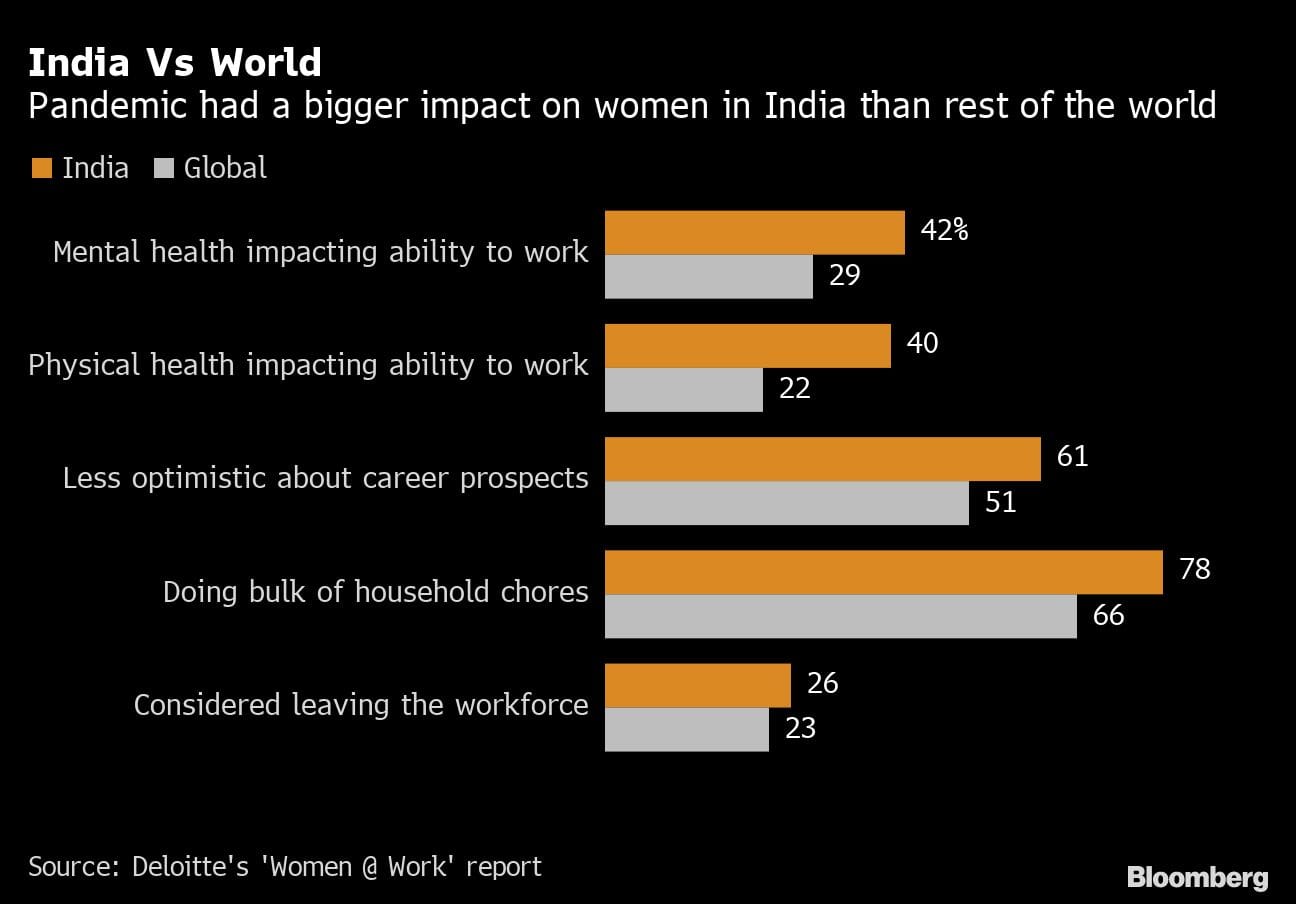
Mental as well as physical health issues affected the ability of women to work in India, and the impact was more severe than what was felt globally, according to a recent survey by Deloitte. This can widen India’s already large gender gap. Less than a quarter of women in India are in the labor force, which is among the poorest rate in the world, and they earn 35% lower on average than men.
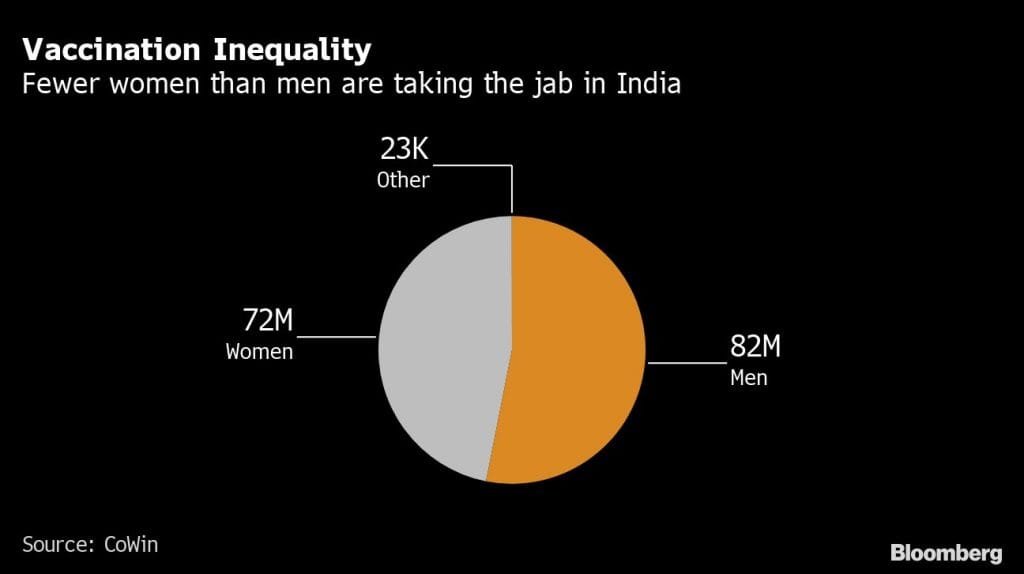
While almost half of the country’s 1.3 billion population comprises women, they lag behind men when it comes to getting vaccinated. Of the 85% of women who were aware about the inoculation drive, only 39% were willing to get vaccinated, according to The Nudge survey.
“The reason for vaccine hesitancy especially among women could be due to many reasons,” said Bhaskar Chakravorti, dean of global business at the Fletcher School at Tufts University. “Women tend to be at the back of the line in the household for access to many services — from healthcare to education to access to a mobile phone. As the traditional caregivers of the family they defer to the needs of others, or that decision is made for them by the men.”- Bloomberg
Also read: 2nd Covid wave impact on economy can be limited to Q1 if cases keep falling, vaccines key: RBI



